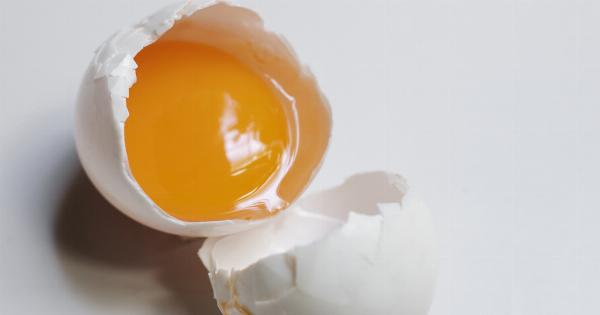Coffee is a beloved beverage that is consumed by millions of people around the world. With its rich aroma and energizing effects, it has become an integral part of many people’s daily routines.
But just how many cups of coffee can one safely consume in a day? This question has sparked much debate among coffee enthusiasts and health experts alike. In this article, we will explore the various factors that can influence your coffee intake and help you determine the ideal number of cups for you.
The Caffeine Content of Coffee
One of the main factors that determine how many cups of coffee you can have per day is the caffeine content. Caffeine is a natural stimulant found in coffee that has a stimulating effect on the central nervous system.
The amount of caffeine in a cup of coffee can vary depending on factors such as the type of coffee bean, the brewing method, and the serving size.
On average, a 8 oz cup of coffee contains approximately 95 mg of caffeine. However, it’s important to note that the caffeine content can vary widely.
For example, a single shot of espresso typically contains around 63 mg of caffeine, while a cup of brewed coffee can range from 80 mg to 200 mg or more.
Your Sensitivity to Caffeine
Another important factor to consider is your individual sensitivity to caffeine.
Some people are more sensitive to the effects of caffeine and may experience symptoms such as increased heart rate, restlessness, or difficulty sleeping even with small amounts. On the other hand, some individuals have a higher tolerance and may require more cups to experience the same effects.
If you’re unsure about your caffeine sensitivity, it’s advisable to start with a lower amount and gradually increase it while paying attention to how your body reacts.
This will help you determine your own threshold and establish a comfortable limit for your coffee consumption.
Health Considerations
While moderate coffee consumption is generally safe for most people, it’s essential to consider any underlying health conditions or medications that may interact with caffeine.
Certain medical conditions such as heart problems, high blood pressure, or gastrointestinal disorders may require you to limit or avoid caffeine altogether.
Caffeine can also interact with certain medications, including antibiotics, antidepressants, and blood thinners.
To ensure your safety, it’s crucial to consult with your healthcare provider if you have any concerns or questions about your coffee intake.
Daily Caffeine Intake Recommendations
Various health organizations and experts have provided general recommendations for daily caffeine intake. The FDA suggests that most healthy adults can safely consume up to 400 mg of caffeine per day, which is roughly equivalent to 4 cups of coffee.
However, it’s important to note that individual needs and tolerances can vary. Pregnant women, for example, are generally advised to limit their caffeine intake to 200 mg per day.
People who are highly sensitive to caffeine or have certain health conditions may also need to consume less coffee or opt for decaffeinated versions.
Listening to Your Body
Ultimately, the best way to determine how many cups of coffee you can have per day is to listen to your own body. Pay attention to how you feel after consuming coffee and make adjustments accordingly.
If you experience jitteriness, anxiety, or have trouble sleeping, it may be a sign that you’ve reached your limit.
Remember that caffeine can stay in your system for several hours, so it’s important to consider the timing of your coffee consumption.
If you’re having trouble falling asleep or staying asleep, you may want to avoid coffee in the evening or close to bedtime.
Enjoying Coffee in Moderation
Coffee can be a part of a healthy diet when consumed in moderation.
In addition to its stimulating effects, coffee contains antioxidants and other beneficial compounds that have been linked to several health benefits, such as reducing the risk of certain diseases like type 2 diabetes, Parkinson’s disease, and liver disease.
However, it’s essential to strike a balance and avoid excessive consumption.
Too much caffeine can lead to side effects such as restlessness, increased heart rate, digestive issues, and even withdrawal symptoms if you suddenly cut back on your intake.
Tips for Coffee Lovers
If you’re a coffee enthusiast, here are a few tips to help you enjoy your favorite beverage without overdoing it:.
- Pay attention to serving sizes. A standard cup of coffee is typically 8 oz, so keep this in mind when getting your caffeine fix.
- Consider the caffeine content of other drinks and foods you consume throughout the day. Energy drinks, tea, chocolate, and even some medications can contribute to your overall caffeine intake.
- Experiment with decaffeinated or lower-caffeine options. There are plenty of delicious decaf coffees and teas available that can still provide the comforting ritual of enjoying a hot beverage without excess caffeine.
- Stay hydrated. Make sure to drink enough water alongside your coffee to stay properly hydrated.
- Be mindful of sweeteners and additives. Some coffee beverages, such as sugary lattes or Frappuccinos, can be high in calories and added sugars. Opt for healthier alternatives or enjoy these treats in moderation.
- Take breaks from caffeine periodically. If you find yourself relying on coffee for energy every day, it might be beneficial to take occasional breaks to reset your caffeine tolerance.
By following these tips and listening to your body, you can enjoy your daily coffee while maintaining a healthy balance.






























